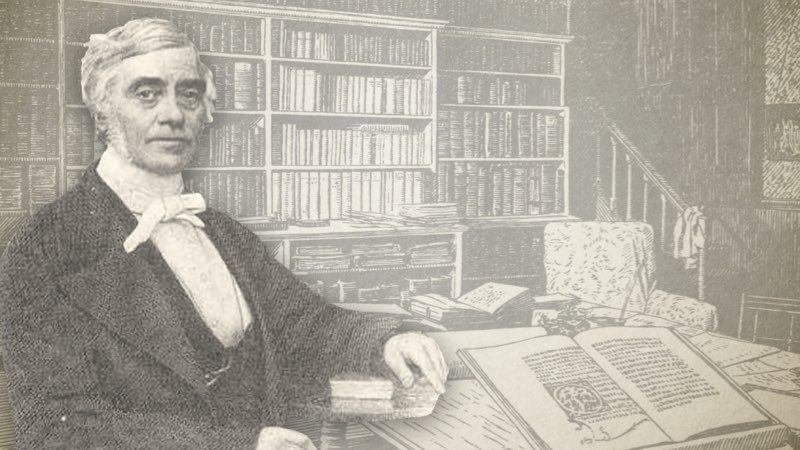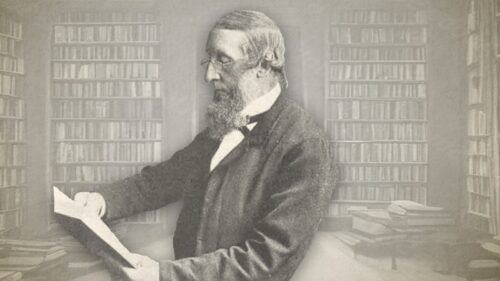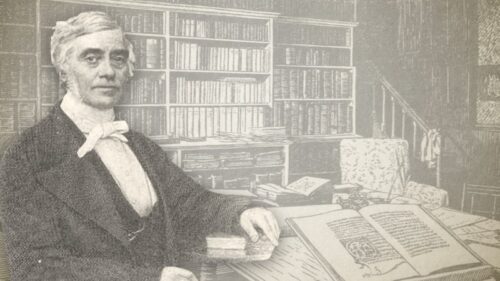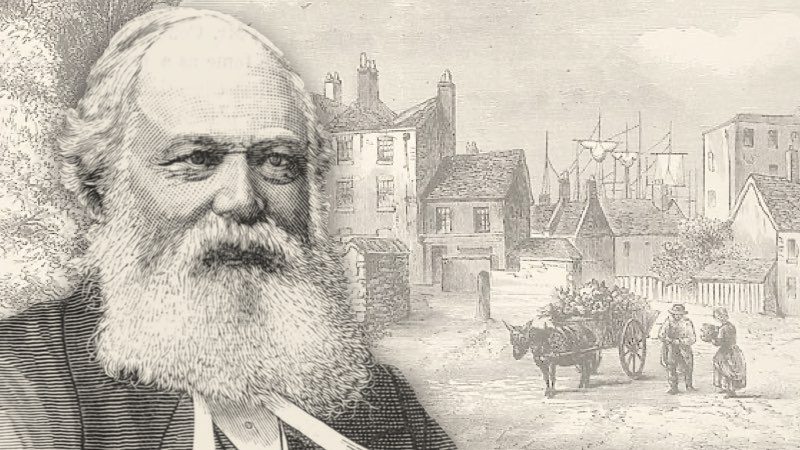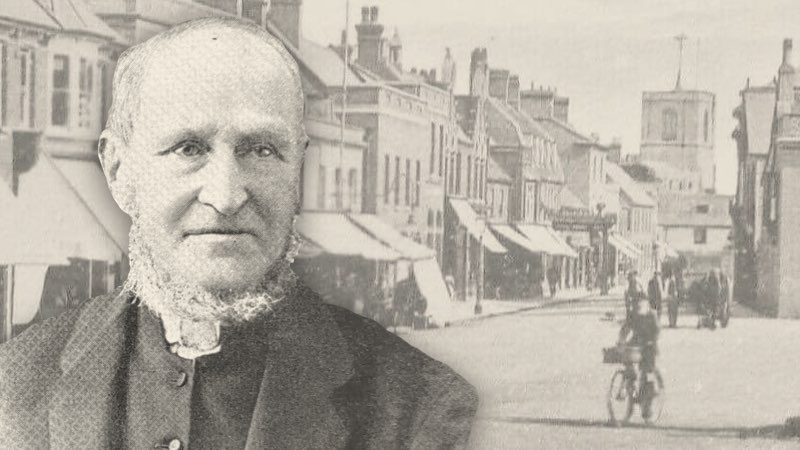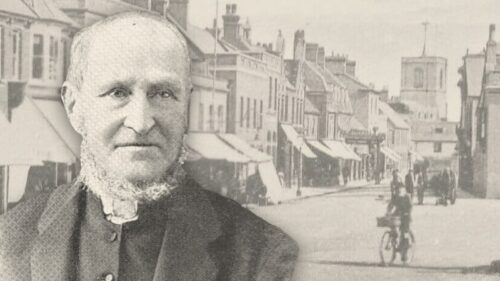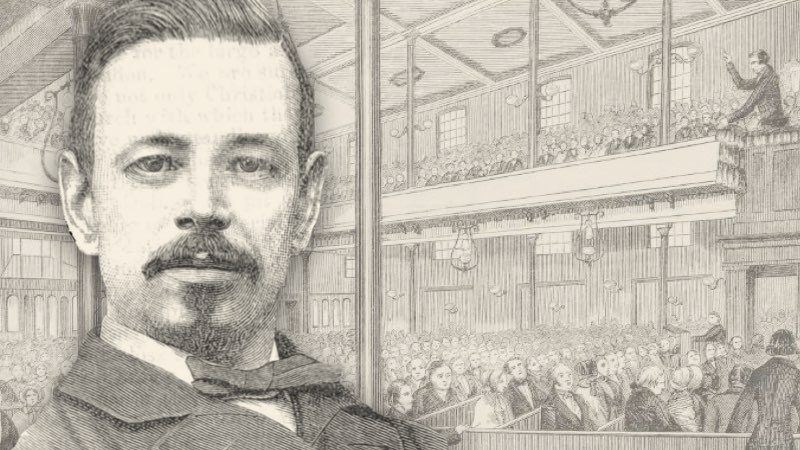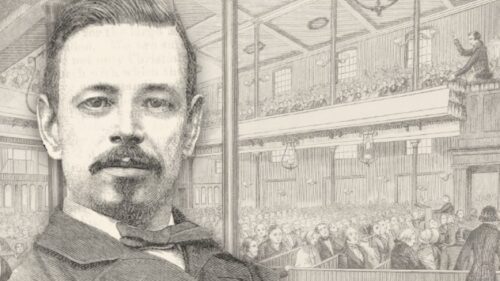-
The Life And Death Of Joseph Philpot
Before this No. of the "Gospel Standard" comes before its readers, the sad tidings will have spread far and wide that he who edited it for upwards of 20 years has been called away from the scene of his labours. His numerous friends, and those who loved and esteemed him for the truth's sake, will be looking for some little account of his last days; and one of his sorrowing children has written the following: Joseph Charles Philpot, the third son of the late Charles Philpot, Rector of Ripple and Vicar of St. Margaret at Cliffe, was born at Ripple, near Deal, Kent, on September 13th, 1802. He was educated at St. Paul's School, London, whence he proceeded to Worcester College, Oxford, where he had…
-
The Life And Ministry Of Joseph Philpot
A man of great grace, profound learning, and with a literary style equal to any of his contemporaries. For twenty years he was editor of the "Gospel Standard," in which his New Year's Addresses, Meditations, Reviews, and Answers to Correspondents were outstanding features. His ten volumes of sermons, entitled "The Gospel Pulpit," and his four volumes of "Early Sermons," testify to his powers as an expositor of the Word, to the beauty of his illustrations, and the heart-searching character of his ministry. He was born at Ripple, Kent, where his father was rector, and educated at Merchant Taylor's and St. Paul's schools, entering at Oxford University in 1821, taking a first-class, and ultimately becoming Fellow of his College. He accepted an engagement in Ireland as…
-
The Life And Ministry Of Samuel Cozens
Samuel Cozens, Pastor Of Zoar Chapel, Ipswich "I have fought the good fight, I have finished my course, I have kept the faith" (2 Tim. 4:7). With feelings of solemn regret we record the almost sudden death from apoplexy of our dear brother, Mr. Samuel Cozens, pastor of Zoar Chapel, David-street, Ipswich. which occurred on Friday, July 1st, 1887, aged 66 years. Although our brother, Mr. Cozens, had not quite reached the allotted period assigned to man, he had been a great sufferer for some years from several internal complaints, which had almost incapacitated him for many months past from fulfilling the duties of his pastoral office. At last the dear Lord gently brought him down into the valley of death while in harness without…
-
A Book Review: Memorials Of The Late John Warburton
All who cherish the memory of our now glorified friend, Mr. John Warburton, of Southill, will, we are sure, speedily purchase his autobiography just published, and will thank the editor of it, Mr. C. Hemington, of Devizes, for the able and faithful manner in which he has discharged his work. We have perused the volume with much real pleasure and profit, and heartily commend it to the careful reading of all our friends. The Letters and Meditations it contains are full of precious truth, and well calculated to meet the varied experiences of the tried family of God. Mr. Hemington, in his excellent preface to the work, says "Mr. Warburton was, in fact, a remarkable man in many ways, and take him for all in…
-
The Life And Ministry Of John Warburton Jr.
The Late Mr. John Warburton, Minister Of The Gospel, Southill, Beds. "God hath His mysteries of grace; ways that we cannot tell; He hides them deep as the sacred sleep of him He loved so well." The death of Mr. John Warburton removes from our midst one of the most faithful and laborious Strict and Particular Baptist ministers of this country and of this age. The cause at Southill and the pulpits for many miles round have lost a familiar character. Mr. Warburton was no ordinary man. In the pulpit he was bold, lively, cheerful, and intrepid; his style was easy, methodical, and original. He was always himself, and never sought to imitate any but Christ and His apostles, and never hesitated to utter what…
-
The Life And Ministry Of Obadiah Dolbey
Mr. Obadiah Stephanus Dolbey, the Pastor-elect of the Surrey Tabernacle, is a Yorkshire man, of humble but respectable origin, who, like two of our most popular London preachers, claims to have received no distinguished advantage from any of our great schools of learning, but what he has come short of in this respect he has gained literally, as his honoured predecessor, Mr. James Wells, did, by dint of energy and perseverance, which have determined the progress and success of many of the best of England's great men. But he owes what he is as a man, as a Christian, and as a pastor to the grace of God. Mr. Dolbey's father being a godly man, he may have had some special impression of mind that…

